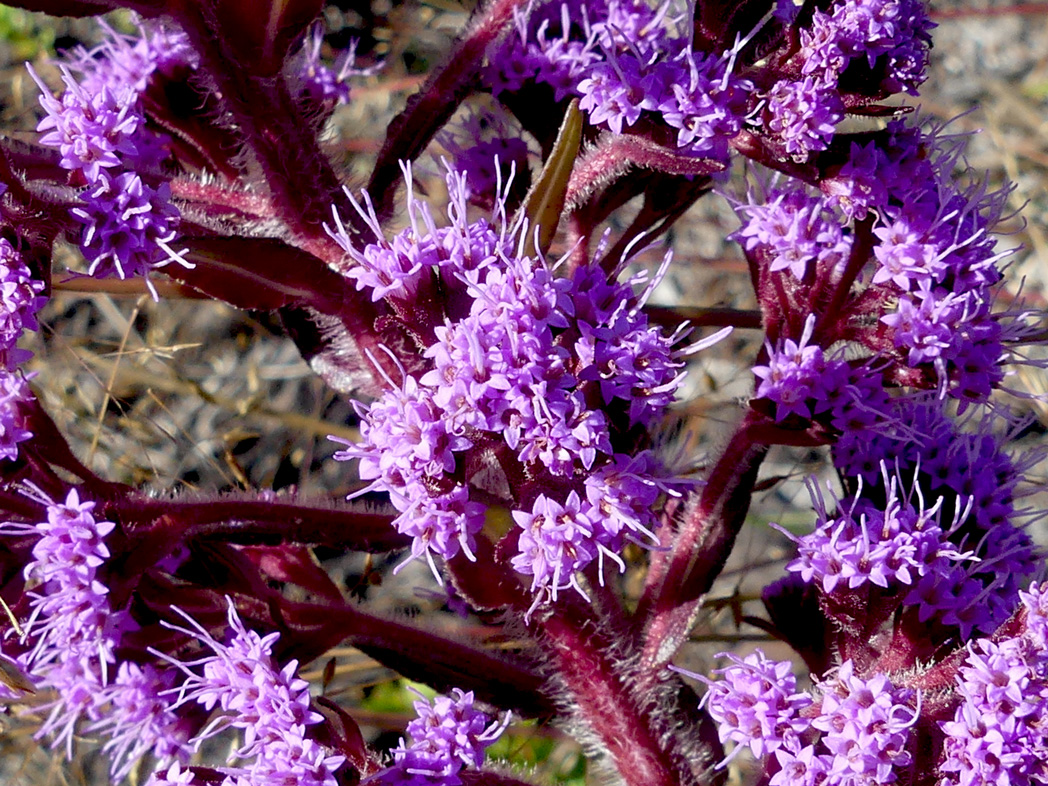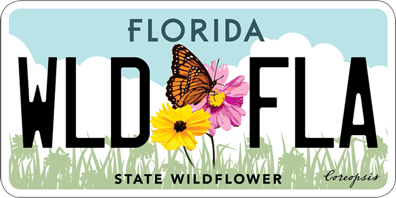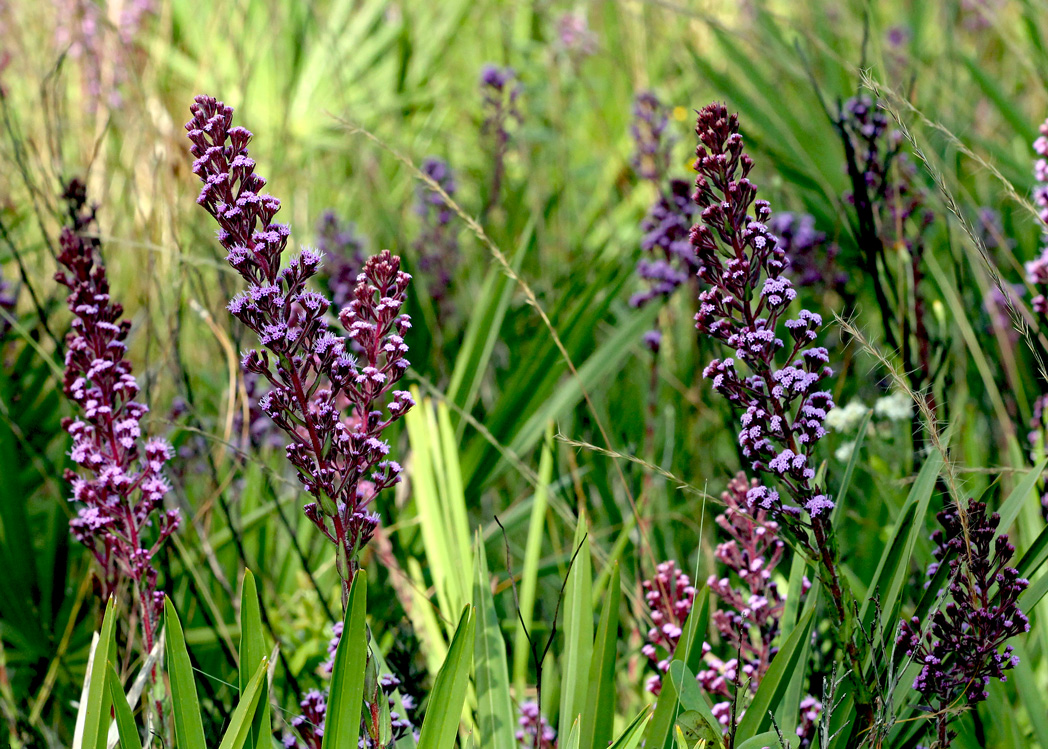Hairy chaffhead
Pictured above: Hairy chaffhead (Carphephorus paniculatus) by Mary Keim. Click on terms for botanical definitions. View post as a PDF.
Hairy chaffhead (Carphephorus paniculatus) is a stunning perennial wildflower found in moist flatwoods and savannas where it tends to form large colonies. It typically blooms from late August through December, with peak flowering in October. Its beautiful fuschia flowers provide nectar for butterflies.
Hairy chaffhead’s many purple flowers are rayless, with tubular disk florets and extended stigmas. They are born in dense, terminal, elongated panicles. Flower stalks emerge from basal rosettes of oblong to elliptic, petiolate leaves that vary in length from 1 to 8 inches. Stem leaves are significantly smaller, lanceolate and sessile. They may be appressed. Margins are mostly entire. Leaf arrangement is alternate. Stems and flower stalks are reddish-purple, covered in hairs and sticky to the touch. Seeds are born in achenes.

Some botanists have separated most species of the genus Carphephorus into the genera Litrisa and Trilisa. Both genera names are anagrams of the genus Liatris, whose flowers have a similar appearance to Carphephorus flowers. Under this convention, C. paniculatus is known as Trilisa paniculata. The common names Hairy Trilisa and Deertongue are also accepted, although Deertongue is also an accepted synonym for Vanillaleaf (C. odoratissimus). “Deertongue” refers to the straplike shape of both plant’s basal leaves.
Family: Asteraceae (Aster, composite or daisy family)
Native range: Nearly throughout except the southernmost counties
To see where natural populations of Hairy chaffhead have been vouchered, visit florida.plantatlas.usf.edu.
Lifespan: Perennial
Hardiness: Zones 8A–10A
Soil: Moist to wet, well-drained sandy soils
Exposure: Full sun
Growth habit: 2–3’+ tall when flowering
Propagation: Seed, division
Garden tips: Hairy chaffhead is suitable for naturalistic and restoration habitats, as well as informal butterfly gardens. The plant is neither drought nor salt tolerant. It is deciduous and will die back in winter.
Hairy chaffhead plants are occasionally available from nurseries that specialize in Florida native plants. Visit www.PlantRealFlorida.org to find a nursery in your area.
For more information on other Carphephorus species, see these resources:

